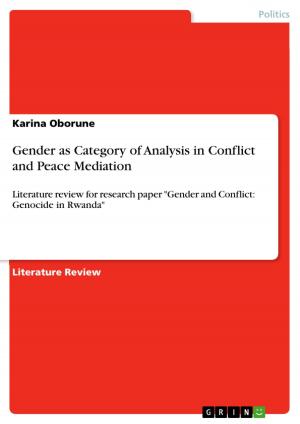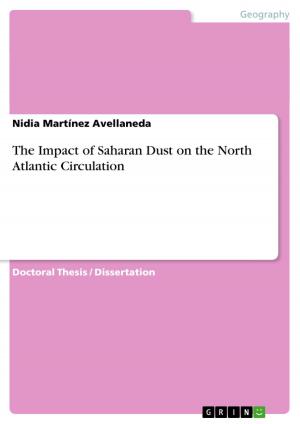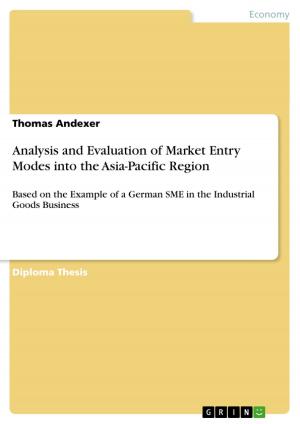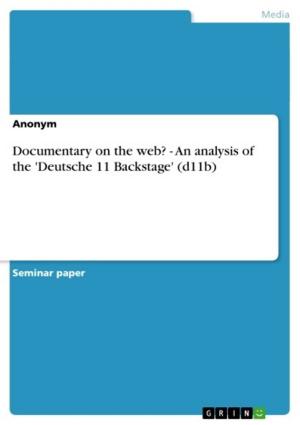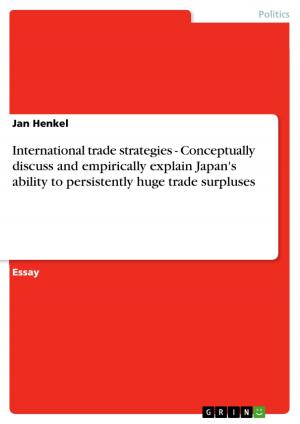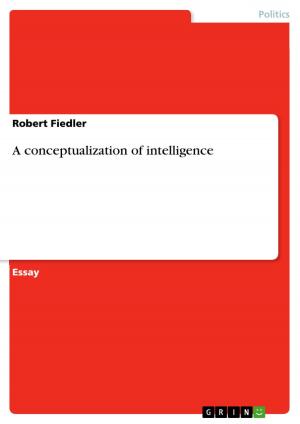Becoming Transnational? Russion Jewish Students at the Universities of Late Imperial Germany
Nonfiction, History, Germany| Author: | Pavel Vasilyev | ISBN: | 9783640783649 |
| Publisher: | GRIN Publishing | Publication: | December 22, 2010 |
| Imprint: | GRIN Publishing | Language: | English |
| Author: | Pavel Vasilyev |
| ISBN: | 9783640783649 |
| Publisher: | GRIN Publishing |
| Publication: | December 22, 2010 |
| Imprint: | GRIN Publishing |
| Language: | English |
Essay from the year 2010 in the subject History Europe - Germany - 1848, Empire, Imperialism, grade: B+, University CEU San Pablo Madrid, language: English, abstract: One of the primary values of the contemporary world is education. The scholars and laymen alike have noticed the ever-increasing role that information and knowledge play in our lives. Nearly all young people in the developed countries get their college degrees, and in many metropolitan areas in Europe and North America the graduate (Master's) degree is gradually becoming a compulsory requirement as well. Education is also intrinsically linked with mobility and transnationalism, since contemporary technology and transportation allows those craving for knowledge to move around the world in their quest - thus transforming both the students' identities and the host communities. However, it was just not always like that. The developments that are described above present a rather recent trend. In this paper I would like to focus on the experiences of Russian Jewish students at the universities of late Imperial Germany - and for some reasons. In European context, the Jews have received a specific dual status as both well-educated 'people of the Book' and discriminated pariahs, excluded from universities and academia more generally. Russian Jews struggled with additional complications, since they were both the members of the transnational religious community with rich history and tradition and the subjects of the multi-national empire which wanted to look as an enlightened and modern European state, but still remained arguably the most backward and autocratic country on the continent. The chronological boundaries (late 19th - early 20th centuries) are determined by the fact that in this period more and more Russian Jews, whose educational opportunities were seriously hindered at home, explored the possibility of studying in Germany. In my opinion, the look at the ideas, personalities and presentations that resulted from the interactions between Russian Jewish students from the Pale of Settlement and the ivory tower world of German universities can tell us much about new identities that were emerging around fin-de-siècle. Accordingly, in this paper I plan to examine and analyze the background of Russian Jewish students and their years at the universities of late Imperial Germany in order to show how their previous identity was at the same time shaken and strengthened - and then transformed into a new one based on their transnational experiences.
PhD (Kandidat Nauk), Russian History, St. Petersburg Institute of History of the Russian Academy of Sciences, 2013 MA, Central European History and Jewish Studies, Central European University (Budapest, Hungary), 2010 (with distinction) BA (Specialist Degree), History, St. Petersburg State University, Russia, 2009
Essay from the year 2010 in the subject History Europe - Germany - 1848, Empire, Imperialism, grade: B+, University CEU San Pablo Madrid, language: English, abstract: One of the primary values of the contemporary world is education. The scholars and laymen alike have noticed the ever-increasing role that information and knowledge play in our lives. Nearly all young people in the developed countries get their college degrees, and in many metropolitan areas in Europe and North America the graduate (Master's) degree is gradually becoming a compulsory requirement as well. Education is also intrinsically linked with mobility and transnationalism, since contemporary technology and transportation allows those craving for knowledge to move around the world in their quest - thus transforming both the students' identities and the host communities. However, it was just not always like that. The developments that are described above present a rather recent trend. In this paper I would like to focus on the experiences of Russian Jewish students at the universities of late Imperial Germany - and for some reasons. In European context, the Jews have received a specific dual status as both well-educated 'people of the Book' and discriminated pariahs, excluded from universities and academia more generally. Russian Jews struggled with additional complications, since they were both the members of the transnational religious community with rich history and tradition and the subjects of the multi-national empire which wanted to look as an enlightened and modern European state, but still remained arguably the most backward and autocratic country on the continent. The chronological boundaries (late 19th - early 20th centuries) are determined by the fact that in this period more and more Russian Jews, whose educational opportunities were seriously hindered at home, explored the possibility of studying in Germany. In my opinion, the look at the ideas, personalities and presentations that resulted from the interactions between Russian Jewish students from the Pale of Settlement and the ivory tower world of German universities can tell us much about new identities that were emerging around fin-de-siècle. Accordingly, in this paper I plan to examine and analyze the background of Russian Jewish students and their years at the universities of late Imperial Germany in order to show how their previous identity was at the same time shaken and strengthened - and then transformed into a new one based on their transnational experiences.
PhD (Kandidat Nauk), Russian History, St. Petersburg Institute of History of the Russian Academy of Sciences, 2013 MA, Central European History and Jewish Studies, Central European University (Budapest, Hungary), 2010 (with distinction) BA (Specialist Degree), History, St. Petersburg State University, Russia, 2009




